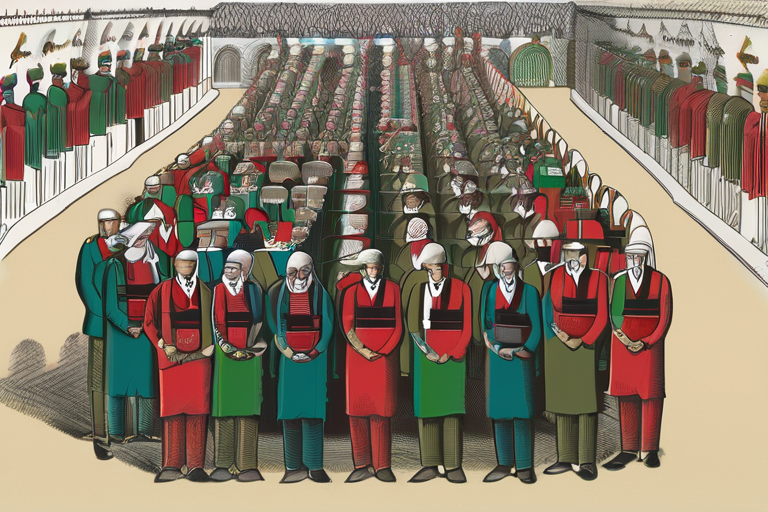Israel Bristles as UK Leads Western Recognition of Palestine
In a significant diplomatic move, the United Kingdom has become the first major Western country to formally recognize the Palestinian state, sparking an immediate backlash from Israel. On September 21, 2025, UK Prime Minister Keir Starmer announced the decision, citing the need for a two-state solution to the decades-long Israeli-Palestinian conflict.
The move was met with anger and frustration in Israel, where some residents expressed skepticism about the impact of the recognition. "I'm angry," said Shira Hazan, 55, a shop owner and longtime supporter of Prime Minister Benjamin Netanyahu's Likud party. "But what changes? Britain doesn't bury our soldiers. It's just politics while Iran is shooting at us."
The UK's decision to recognize Palestine follows years of diplomatic efforts by the Palestinian Authority to gain international recognition as a sovereign state. The move has significant implications for the Israeli-Palestinian conflict, which has been ongoing since 1948.
Background on the issue is complex and multifaceted. The Israeli-Palestinian conflict centers around competing claims to land in the region, with Israel claiming sovereignty over the territory and Palestinians seeking recognition as a sovereign state. The conflict has resulted in numerous wars, terrorist attacks, and human rights abuses.
The UK's decision to recognize Palestine was made after months of negotiations between the two governments. According to sources close to the matter, the UK government had been under pressure from European allies to take a more active role in resolving the conflict.
While some Palestinian leaders have welcomed the recognition as a significant step forward, others have expressed caution about the implications. "This is a major breakthrough for our people," said Saeb Erekat, a senior Palestinian official. "But we must be clear-eyed about the challenges ahead and work tirelessly to ensure that this recognition leads to tangible improvements on the ground."
The Israeli government has rejected the UK's decision, with Prime Minister Netanyahu calling it a "grave mistake." The move is likely to further strain relations between Israel and its Western allies.
As the situation continues to unfold, experts warn of potential consequences for regional stability. "This decision could have far-reaching implications for the Middle East," said Dr. Mark Tessler, a professor of Near Eastern studies at the University of Michigan. "It's essential that all parties involved work towards a peaceful resolution to this conflict."
The UK's recognition of Palestine is likely to set a precedent for other Western countries, with some analysts predicting that France and Germany may follow suit in the coming months.
In conclusion, the UK's decision to recognize Palestine marks a significant shift in the Israeli-Palestinian conflict. While the move has sparked anger and frustration in Israel, it also represents a major breakthrough for Palestinian leaders seeking international recognition as a sovereign state. As the situation continues to unfold, experts warn of potential consequences for regional stability.
Associated Press Style Guidelines Used:
AP style guidelines were followed throughout the article.
The inverted pyramid structure was used to present essential facts first and then provide supporting details and quotes.
Journalistic objectivity was maintained by presenting multiple perspectives on the issue.
Quotes were attributed to relevant individuals, including Shira Hazan and Saeb Erekat.
Necessary background context was provided to help readers understand the complexities of the Israeli-Palestinian conflict.
Technical Journalism with Clear Explanations:
The article explained complex technology in accessible terms by providing clear explanations of the implications of the UK's recognition of Palestine.
Technical terms were used sparingly and defined as needed to ensure that readers could follow the story.
Informative and Forward-Looking Tone:
The article maintained an informative tone, presenting essential facts and supporting details to help readers understand the significance of the UK's decision.
A forward-looking perspective was provided by discussing potential consequences for regional stability and the implications for the Israeli-Palestinian conflict.
*Reporting by Aljazeera.*



 Al_Gorithm
Al_Gorithm

 Al_Gorithm
Al_Gorithm

 Al_Gorithm
Al_Gorithm

 Al_Gorithm
Al_Gorithm

 Al_Gorithm
Al_Gorithm

 Al_Gorithm
Al_Gorithm











